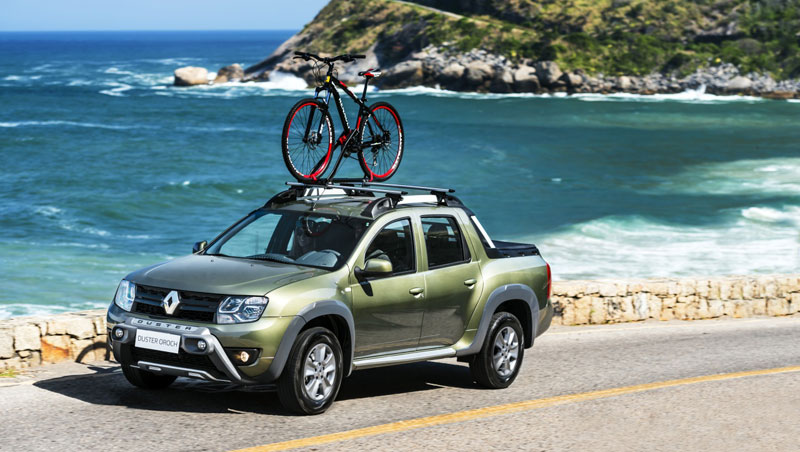
Oroch Renault’s flagship bakkie in South America
Exciting news is buzzing in the world of bakkies, and South Africans have every reason to be thrilled… Renault continues to push boundaries in both design and innovation and has confirmed that they are working on a brand-new 1-tonner bakkie! For those eagerly awaiting fresh competition in this segment, especially following the NP200’s discontinuation, the new Renault 1-tonner is a welcome development.
Renault’s Bold Move
Renault’s investment in its Argentinian operations shows the brand’s commitment to producing robust and versatile bakkies that can tackle any challenge thrown their way. According to Renault Group, a hefty $350 million investment will go toward manufacturing this new vehicle at its Santa Isabel plant in Argentina.
While the new Renault bakkie will be produced in Argentina, Mzansi’s bakkie lovers are keeping a close eye on this development. The local market has shown immense interest in Renault’s bakkie line-up for years, particularly since the introduction of the Duster-based Oroch in international markets. Despite high hopes, the Oroch never officially made its way to South Africa. However, with the arrival of this all-new 1-tonner, Renault has an opportunity to redeem itself and tap into the growing demand for practical, yet stylish, bakkies in our country.
The vehicle is set to replace the Oroch as Renault’s flagship bakkie in South America, but its potential for South African soil cannot be ignored. South Africa’s love affair with bakkies is well-documented. Whether it’s for farm work, family adventures, or everyday commuting, a good bakkie is a staple here. Renault could be set to provide an exciting option in this highly competitive space.
A New Era Of Versatile Bakkies
The new Renault 1-tonner is expected to be a game-changer. The bakkie is being developed on Renault’s Modular Platform (RGMP), an architecture designed to accommodate a variety of vehicles ranging from small to mid-sized, between four and five meters long. This platform can support both front-wheel and four-wheel-drive configurations, providing plenty of flexibility to meet the demands of adventurous drivers.
Though technical details are still under wraps, the expectation is that this new bakkie will boast innovative powertrains. Hybrid and mild-hybrid options are likely to feature, offering a blend of efficiency and power, making it an ideal choice for those who value fuel economy without sacrificing performance.
Competition Heats Up!
Interestingly, Renault isn’t the only one eyeing the South African bakkie market. The new 1-tonner will share some of its DNA with Nissan, which also has plans to introduce a vehicle based on the same platform. It’s a partnership that follows the long-standing Renault-Nissan alliance, which means both brands will likely benefit from cost savings and economies of scale, all while delivering distinctive products for their respective markets.
For South Africans, this means more choice. With the Nissan NP200 no longer in production, the new Renault-Nissan bakkie could very well become the replacement we’ve been waiting for. Both brands are known for producing tough, reliable vehicles, so we can only expect the best!
Looking Ahead
The official production of the Renault bakkie will begin sooner than expected, with assembly set to start in 2026 at the Santa Isabel plant. While it’s too early to confirm if and when this vehicle will land on our shores, the anticipation is already mounting. Spy images, teasers, and perhaps even official hints may start to trickle in by 2025, so bakkie enthusiasts should keep their eyes peeled.
.
As we wait for further details, one thing is clear: Renault is once again proving its commitment to delivering versatile, high-quality vehicles. Whether for work, play, or a bit of both, the new Renault 1-tonner could be the perfect fit for South African drivers seeking both style and substance.
For the latest updates and all things Renault, be sure to follow Group1 Renault’s Facebook page. Stay in the loop with the latest news, upcoming models, and special offers. Don’t miss out!

